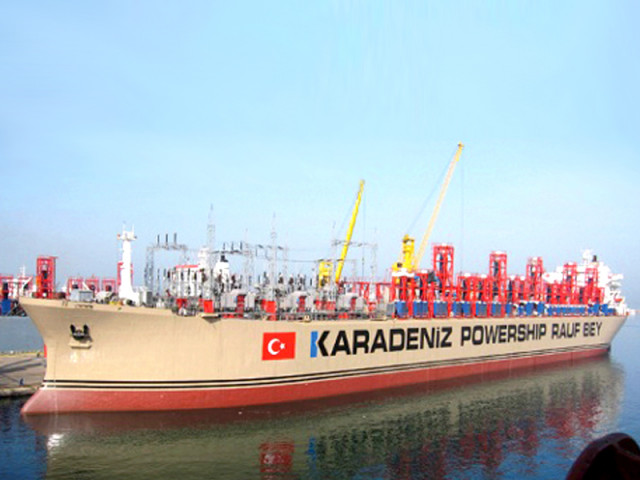Ruling on rental power plants: Turkish firm takes dispute to international court
Demands halt to NAB inquiry, restoration of frozen banks accounts.

Ruling on rental power plants: Turkish firm takes dispute to international court
Rejecting the Supreme Court’s ruling on rental power plants (RPPs), Turkey-based power firm Karkey Karadeniz Elektrik Uretim (KKEU) has instead moved the International Court of Arbitration – seeking compensation from the Government of Pakistan for losses that it says have arisen out of the latter’s alleged breach of contract. The company has sent a legal notice to the Government of Pakistan seeking remuneration for losses arising out of – what it says – is a violation of the Rental Service Contract (RSC).
The firm says that Pakistan has violated the obligations of an investment treaty between Pakistan and Turkey, and that the breach of contracts pertaining to rental power plants is also in violation of international law.
In a legal notice served to the Government of Pakistan on May 19, 2012, KKEU has demanded that the former halt inquiries initiated by the National Accountability Bureau (NAB).
Previously, NAB had sought payment of over $180 million from KKEU during an inquiry initiated after the Supreme Court’s verdict calling for the dissolution of all rental power projects. The company summarily refused to deposit the amount. NAB had also obtained and issued a freezing order against Karkey’s banks accounts in Pakistan.
The Port Qasim Authority had taken action against the firm on April 5, 2012, after the Supreme Court’s verdict calling for the dissolution of all rental power projects. The authority acted by issuing a notification which said that ‘caution’ had been placed on Karkey’s vessels under Section 23 of the Pakistan National Ordinance. The notification further directed that vessels were not to move from their moored position until completion of the NAB inquiry, or before clearance from NAB. Pakistan has refused to lift that caution to date.
The firm has also demanded that the government withdraw a freeze in place on KKEU’s bank accounts in Pakistan. The latter should also ensure the release – and allow unhindered removal – of all vessels and equipment currently located in Pakistani territory without delays, the notice said.
Karkey said that it had suffered – and continued to suffer – substantial losses arising out of the inquiry, for which the Government of Pakistan should reimburse the firm.
The Pakistan government has also been warned to desist from making any demands or taking any action for sums to be paid by Karkey. Pakistan has been urged, instead, to compensate Karkey for losses suffered by the company to date. Pakistan is to remain liable for any further loss suffered by Karkey, the notice said.
“For the avoidance of doubt, Karkey does not accept that the Supreme Court had jurisdiction in relation to this matter,” the firm’s legal council has said; adding that NAB wrongly commenced an inquiry against Karkey.
“In the event that disputes cannot be settled within six months of the date of this written notification, Karkey will commence arbitration proceedings in accordance with the Article V11 of the Treaty,” the firm has said. In the event of Pakistan’s failure to respond promptly to this notification, or to engage in meaningful consultations and negations, KKEU reserves the right to commence arbitration proceedings forthwith, the company clarified.
A senior official of the Ministry of Water and Power confirmed that the ministry had received a legal notice from the Turkish firm, and added that negotiations were being held with the Turkish government to resolve the issue.
Published in The Express Tribune, May 27th, 2012.


















COMMENTS
Comments are moderated and generally will be posted if they are on-topic and not abusive.
For more information, please see our Comments FAQ